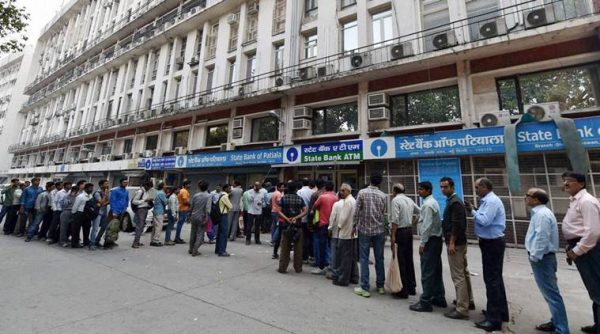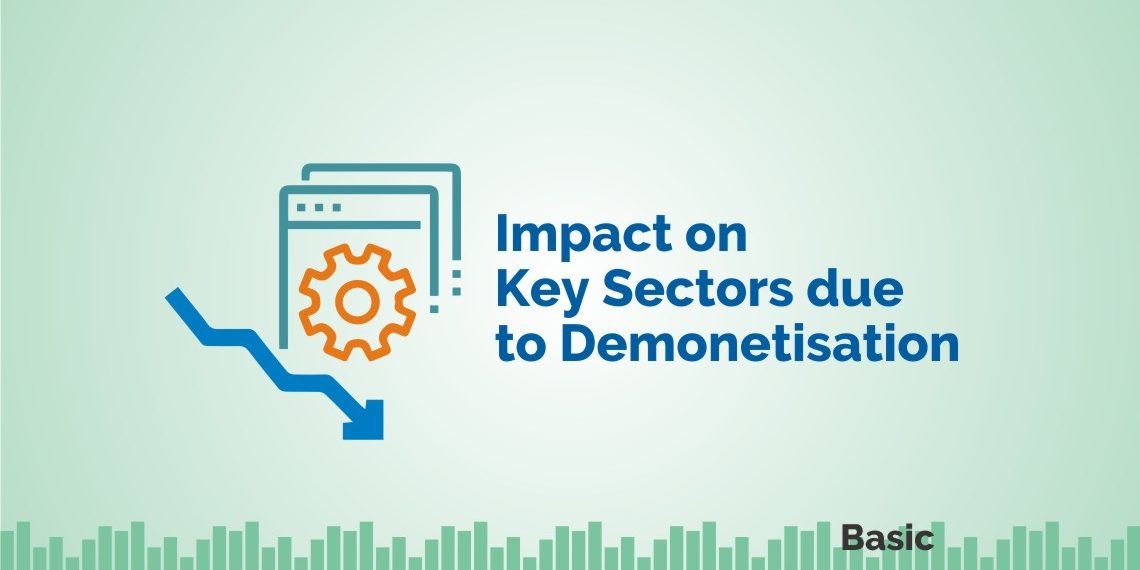Sector analysis is an essential element of fundamental analysis. To learn more about the basics of fundamental analysis, join the Online NSE Academy Certified Capital Market Professional (E-NCCMP) course on Elearnmarkets.
Government’s sudden move on demonetisation to boldly counter the black money and terrorism is likely to have a significant impact on the economy. The stock market also felt a heavy jolt with the demonetization move with benchmark indices Sensex and Nifty plunging the most.
The ban of 500 and 1000 rupees note is appreciated by most Indian citizens and economists but it has created a short-term liquidity crunch in the system.
Most of the macroeconomic impact will be felt in the short to medium term but the long-term picture seems positive.
Here are the key sectors which are expected to get most hit due to the demonetisation move of the government-
Sectors affected by demonetisation
1. Automobile
The automobile sector has witnessed a negative impact and most firms are expecting fall in volume sales in the coming months especially in the two-wheeler segment where payments are mostly done through cash.
For instance, Hero Moto corp sold 4,79,856 units in November 2016 down from 6,63,153 units sold in October 2016.
It will take some time for the demand to improve but it is expected to improve in a matter of 3-6 months once the industry gets back on track.
2. Jewelry sector
Most people park their black money in gold and other jewelry items.
The recent crackdown on the gold price suggests fall in demand in the short term.
However, the overall industry welcomed this as a positive effect in the long term since people will have more faith in the precious metal than the currency notes.

3. Real Estate
This sector is expected to have a major hit along with building material companies.
The performance of the real estate sector has been poor in the last few years with inventories piling up and now demonetisation into play will even worsen the situation.
The stock market reflected such effect as BSE Realty index was the biggest loser post demonetisation.
But another angle could be that with real estate price becoming so affordable that in a medium term, growth is expected to pick up when money starts flowing in the economy.
4. Non-banking finance companies
Again this is another sector which has been negatively impacted.
These NBFC’s which conduct transactions for the small and medium enterprises is expected to have a cash flow issue in the short term.
Moreover, there is a concern over growth and asset quality in mid and large Loans Against Property segment.
5. Consumer durables–
The demonetisation will lead to a negative impact on consumption of high-value items since individuals with a huge amount of undisclosed income will focus on managing their finances rather than spending in the short term.
6. Tourism
Demonetisation has hit tourism industry at the peak season.
Post demotisation, there was a slump in the flight fare, hotel bookings, and associated service booking. Though there wasn’t much impact in the premium hotel segment as the bookings are mostly done online and in advance.
However, in the last few days, the travel and hotel bookings have made a slow but steady comeback. The demonetisation hit was mostly seen in the unorganized sector.

7. Infrastructure
The impact on the infrastructure sector is negative for the short term but long term picture looks positive.
There have been hit in the power demand and road traffic especially they faced short-term cash flow problems as they were not able to collect tolls.
Moreover, it may also impact the execution of work in the short term as wage payment to labors can be an issue for some time.
8. Pharma
There may be some pinch in the short term but the effect will be neutral in the long term.
Post demonetisation, the retail sales of medicine of chronic disease went up for about first two weeks as people stocked up medicine using their old currency available at few outlets.
The sales of drugs are expected to remain subdued in the coming few months.
However, the demand for drugs being inelastic, the demonetisation impact is likely to be temporary.
9. Banking
The banks will be a beneficiary in the short term due to a surge in the low-cost deposit which in turn leads to better margins.
Moreover, the increase in balance sheet size will help even further when credit growth picks up. However, there is a concern over worsening of asset quality with the slowdown in the economy in the short term.
Over the long term, banks will be benefitted due to greater fee income from the electronic payments and increase in savings.

Bottomline
We may see a decline in inflationary pressures as demand along with household inflation expectation will possibly go down.
It even increases the chance of rate cut in future as the current scenario has put RBI in a comfort zone to curb inflation in the future.
Though the effect of demonetisation seems to be disproportionate among different sectors and different income class in the short to medium term but on an international scale it got a big thumbs up since other countries can take lessons from this move and choose it as a viable option to curb black money and stem illegal financial activity.
However, this is just a start and it is expected that more such bold move is expected in the days to come.
Happy Learning!!







